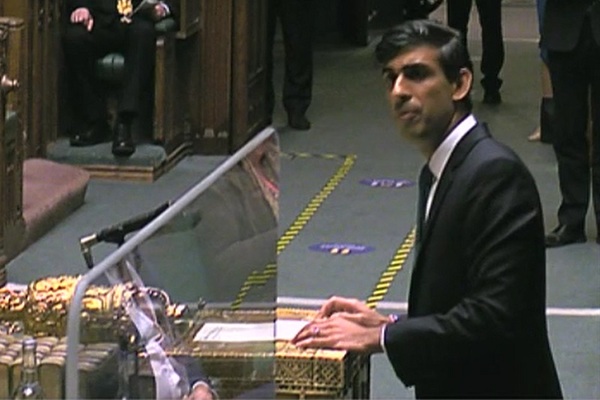
Jules Birch is an award-winning blogger who writes exclusive articles for Inside Housing
The government’s stance on Universal Credit is an ominous sign of its priorities
As a crucial Spending Review looms in the autumn, social housing could find itself well down the list of priorities. The likely Universal Credit cut is ominous evidence of the Treasury’s thinking, writes Jules Birch
The government’s refusal to extend the £20-a-week uplift in Universal Credit has ominous overtones for housing’s prospects in the Spending Review to come in the autumn.
Consider the evidence. Unemployment-related benefits in the UK are among the least generous in Europe, not least because of cuts made in the original plans for Universal Credit. Removing the uplift means benefits will fall to their lowest ever level as a proportion of earnings.
For all the government’s arguments about levelling up, the cut will hit a third or more of working-age households in Wales, the North and the Midlands against a fifth in the South East.
For all the government’s arguments about work being the route out of poverty, almost as many people on Universal Credit (2.2 million) are in work as unemployed and looking for work (2.3 million). The remaining 1.6 million are not required to work because of ill health or having a child under the age of one. All will become £1,000-a-year poorer.
Of course there is still time for ministers to change their mind, but for the moment they look set to go ahead despite lobbying from the last six Conservative work and pensions secretaries to keep the uplift.
But can you imagine the last six housing ministers, or communities secretaries, doing the same as their colleagues at the Department for Work and Pensions? And, even if they did, do you think that the chancellor would be more or less likely to listen to them? So Matthew Bailes is surely right to warn that the housing sector should be on a ‘war footing’ ahead of a Spending Review being conducted in the context of long-term structural pressures on the public finances.
As politics begins to return to normal after the pandemic, health will be the overwhelming priority in the Spending Review – but even NHS heroes only got a one per cent pay rise (aka real-terms cut).
Education is probably next, but so far the government has only come up with a fraction of what its independent advisor said was needed to catch up on the schooling that children missed during the pandemic.
Social care’s moment could have – finally – come after years of putting off a decision on reform and will come with a hefty price tag.
Levelling up will cost more, whether it means grant scheme bribes or infrastructure projects to turn Boris Johnson’s rhetoric into spending on the ground. The argument that housing is infrastructure has not yet been won.
All of which leaves housing competing with other unprotected programmes for the crumbs that will be left over as the chancellor tries to square the circle of spending and taxes. But then ask yourself where social and affordable housing – or homelessness – will come in the list of priorities within housing.
Way below homeownership, certainly, for a government as focused on political advantage as this one. Even if it does not come up with a new, eye-catching initiative in the autumn, First Homes will continue to suck subsidy away from affordable homes while the government has just spent billions on a stamp duty holiday that has contributed to housing becoming more unaffordable at the fastest rate since 2004.
Below fire safety? Probably. The post-Grenfell, post-EWS1 crisis shows no signs of going away and the government will surely have to come up with more money.
“Even if it does not come up with a new, eye-catching initiative in the autumn, First Homes will continue to suck subsidy away from affordable homes”
Below decarbonisation? In the run-up to COP26 definitely and in the longer term probably as the costs are too high to be borne by individual homeowners without political costs. Where will that money come from?
All of which leaves social and affordable housing out on a limb, especially in areas like London where it costs the most and where people have a bad habit of voting Labour.
The issues of Universal Credit and housing are of course intimately connected through Conservative attitudes towards people on benefits and in social housing and cuts in benefits will translate directly into rent arrears.
Turn that on its head, though, and investment in genuinely affordable and secure homes is by far the best way to make work pay for the millions of low-paid workers we have all relied on over the past 18 months.
Equally, it is hard to think of a period that has provided more evidence of the health costs of poor housing.
The arguments are strong, but so were those made for the Universal Credit uplift, and time is running out.
Jules Birch, columnist, Inside Housing
Sign up for our tenancy management newsletter
Already have an account? Click here to manage your newsletters












